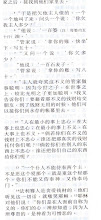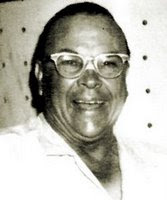Wednesday, April 15, 2009
Autoimmune Disease? A step in the right direction for elimination
In essence like a heat seeking missle , if these selective modulators are directed at let us say hepatic eosinophyllic cell over-production there will be hope for AIH or Autoimmune Hepatitis,
Lupus (SLE), and other diseases involving autoimmunity, the disease can be eliminated.
There are cytokines which more specifically are responsible for the TNF and eosiniphyl and IgA
production. If their receptor is blocked then their action is blocked within the context of the cytokine cycle.
I will seek to continue to prove the connection of the Cytokine Cycle to the Krebs, Respriatory, UREA, and Glycolytic cycles as my contribution to humanity forever
Please read below for this GOOD NEWS!
http://bit.ly/p5QmB -For Twitters
Trial to Evaluate Safety of CCL2-LPM for Inflammatory Kidney Disease
SAN FRANCISCO, April 14 /PRNewswire/ -- Osprey Pharmaceuticals U.S.A., Inc. announced today that patient dosing has commenced in a Phase Ib clinical trial of the company's lead compound, CCL2-LPM, for the treatment of IgA nephropathy, an inflammatory kidney disease. Osprey Pharmaceuticals U.S.A. is developing novel chemokine-enzyme fusion protein therapeutics, known as Leukocyte Population Modulators (LPMs), for the treatment of inflammatory and autoimmune diseases. CCL2-LPM selectively targets activated leukocytes expressing the chemokine receptor CCR2 that are responsible for initiating and maintaining a variety of inflammatory conditions.
The Phase Ib open-label, dose-escalating study will enroll up to 30 patients diagnosed with IgA nephropathy at clinical sites in Canada. The trial design utilizes a continuous reassessment method to evaluate safety of CCL2-LPM and to establish a maximum-tolerated dose. Secondary endpoints for the Phase Ib clinical trial include an assessment of pharmacokinetics and biomarkers of disease associated with the mechanism of action of CCL2-LPM.
"We are pleased to advance the first of our LPM compounds designed to target and neutralize chemokine-mediated inflammation into clinical trials. CCL2-LPM has shown a favorable pharmaceutical profile, demonstrating efficacy at low doses in models of glomerulonephritis, as well as tolerability at relatively high doses in preclinical toxicology testing," said Barbara Finck, M.D, Senior Vice President of Research and Development and Chief Medical Officer for Osprey Pharmaceuticals U.S.A., Inc. "We are hopeful that the Phase Ib clinical trial of CCL2-LPM will provide us with indications of the compound's biologic activity in addition to establishing safety. Initial results from the Phase Ib study are expected later this year."
Subscribe to:
Post Comments (Atom)
































































No comments:
Post a Comment